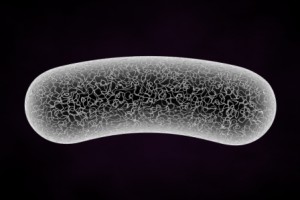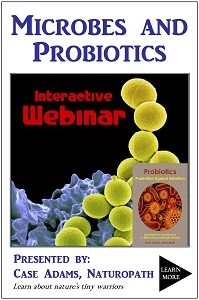Probiotics Treat Diarrhea Caused by Antibiotics
For years, probiotic experts have been recommending probiotics be supplemented between and after antibiotic courses. Conventional medicine is finally catching on.
Over-prescribing of antibiotics is still rampant in conventional medicine. Research also finds antibiotics are often over-prescribed to children. And various problems, including weight gain, plague children given antibiotics as infants.
Multiple studies on antibiotics-related diarrhea
A review of 82 studies published in the Journal of the American Medical Association has confirmed that diarrhea caused by pharmaceutical antibiotics can be successfully treated by probiotic supplementation.
The review study, from RAND Health, was conducted using clinical databases that doctors throughout the world utilize to identify clinical research, including the Cochrane Library and many others.
The researchers found that while most studies included Lactobacillus and Bifidobacterium species such as Lactobacillus acidophilus and Bifidobacterium bifidus, a number of other additional strains were also used among various studies, often producing similar results. This left an open question for the researchers as to which specific strains will produce the intended result of reversing diarrhea.
This question, according to some probiotic experts, utilizes the same ‘single bullet’ approach that has created the overuse of antibiotics and produced the release of dangerous superbugs that are resistant to antibiotics.
The approach of probiotic experts, contrary to the ‘single bullet’ approach, relates to the environment of the digestive tract. Healthy intestines are home to many resident strains of probiotics, which produce natural antibiotics that deter the infective bacteria and yeasts that cause diarrhea. Antibiotic use will wipe out many of these probiotic colonies, leaving the intestinal tract open to new infections of opportunistic bacteria and yeast that produce diarrhea.
Research has proven – as this research illustrates – that probiotic supplements help revive the normal environment of our intestines, allowing resident strains to (hopefully) increase in numbers. In the meantime, supplemented probiotic strains also help protect the intestines by producing their own antibiotics to fight off the diarrhea-causing bacteria.
The reason different strains of probiotics have been effective for antibiotic-associated diarrhea is that probiotic strains are typically territorial and thus will fight off pathogenic bacteria. Because each digestive tract and each infection is unique, certain strains can be more responsive in different people and for different infections. In addition, most of the Lactobacilli strains produce lactic acid, which creates an environment conducive to the regrowth of our resident strains.
REFERENCES:
Hempel S, Newberry SJ, Maher AR, Wang Z, Miles JN, Shanman R, Johnsen B, Shekelle PG. Probiotics for treatment of antibiotic-associated diarrhea: a systematic review and meta-analysis. JAMA. 2012 May 9;307(18):1959-69.
Adams C. Probiotics – Protection Against Infection: Using Nature’s Tiny Warriors To Stem Infection and Fight Disease, Logical Books, 2016.
















